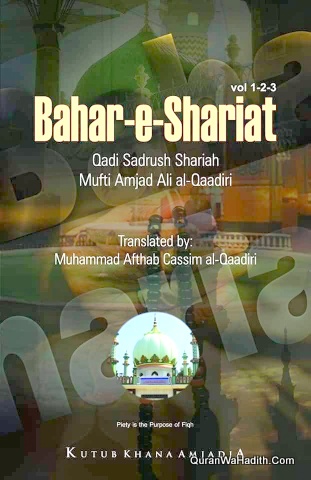
Moreover, this app will also help you in learning Namaz ka bayan (Speech regarding Prayer), Namaz k masail (Shariah rulings regarding Namaz). While using this app one can easily learn Wuzu ki Sunnat and much more. Once you go through the first part of this app, you would earn great treasure of knowledge about fundamentals of Islam.Īlso in this app one can go through “Wuzu ka bayan” in which he will learn Wuzu ka Tariqa (Method of ablution), wuzu ki Sunnatien (Sunnah regarding ablution), Wuzu k Mustahab (Mustahab of Wuzu). Being essential for every Muslim, Islami Aqaid bayan must be read by the user. Part 1 of the book in this app elaborates “Islami Aqaid ka Bayan” in which users can read about the fundamental beliefs of Islam. The three volumes of the book classified into 20 parts have been gorgeously designed in this application. Search a topic or word through search bar.īahar-e-Shariat, a renowned book consisting on three Volumes has been beautifully designed and shaped into a mobile application.Select and copy a particular Ayah, Hadith or other content.ĝictionary that helps you in understanding some difficult words.Some important Istilahaat (Terminologies).The book has been published by many publishers across India and Pakistan.Sharia Masaail in the form of a mobile application The topics encompassing the whole life of a person are discussed by the author. Parts 14 to 20 are compiled in the third volume, which includes topics such as Inheritance, Qassas, Diyat etc. The second part includes topics like Talaq ( Divorce) and Khula, (trade matters involving buying and selling of goods) and Kufria sentences etc. There are separate parts for theology, prayer, ablution, fasting, charity and pilgrimage.


The book is written in simple Urdu and has 11,624 topics. The final three books were compiled by his disciples after his death. Spreading over 20 volumes, Seventeen of its volumes were written by Amjad Ali Aazmi, a disciple of Ahmed Raza Khan. Bahar-e-Shariat ( Urdu: بہارِ شریعت 1939) is an encyclopedia of Islamic fiqh (jurisprudence), according to the Hanafi school.


 0 kommentar(er)
0 kommentar(er)
